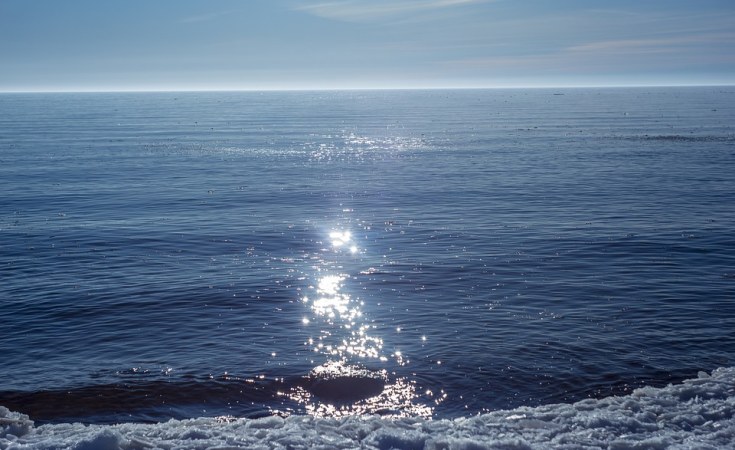Work on a floating solar farm in Seychelles is expected to begin this year, following the signing of three agreements for the project on Tuesday.
Once completed, Seychelles will have built the world's largest salt-water floating solar plant.
The project, which has been seven years in the making, will see the installation of a 5-megawatt photovoltaic system in the lagoon at Providence, on the eastern coast of Mahe, which will help Seychelles move closer to its zero-emissions target.
The agreements for the project were signed in a ceremony on board the Energy Observer, which is a floating photovoltaic laboratory, which is an official partner with French renewable energy company Qair.
In fact, of the three agreements signed; one between the Seychelles government and Qair for government support on the project and another two - a power purchase agreement and grid connection agreement - was signed between the Public Utilities Corporation (PUC) and Qair.
"The government is determined to ensure energy security through the best investments and with the use of renewable energy in Seychelles," said the Minister for Agriculture, Climate Change and Energy, Flavien Joubert, in his speech after the signing of the agreements.
He added that "just seven months separate us from this agreement and having a plant in operation in Seychelles."
On his part, the regional director of Qair, Olivier Gaering, said that despite the many international issues that threatened the project, it is great that it finally reached this point.
"Qair started looking into the Seychelles market back in 2015, seven years ago and I am very happy that we have managed to get these agreements signed so that we can move forward with the first independent power production project in Seychelles," said Gaering.
Qair is an independent power producer (IPP), operating 860 MW of power generation assets exclusively from renewable sources.
The group is in the construction and financing phase for 800 MW and is also developing 16 GW of assets for future deployment in the heart of the 20 territories in which it operates.
For the Seychelles project, the majority shareholder is a Seychellois company, Vetiver Tech, owned by businessman Radley Webber.
Webber explained that originally the plant was meant to produce less electricity than has now been agreed, but through their meetings and discussion, they managed to find a way to produce more, through the partnership with Qair.
"We also had some issues when we originally announced the project, with inhabitants of the surrounding area expressing concerns about the impact it would have on marine life, but we were able to show that as these panels will be on the surface of the water, it would have no effects on the underwater species," said Webber.
Gaering explained that all the necessary environmental impact assessments were completed to ensure the project poses no danger to the surrounding environment.
The agreements signed last for 25 years, with Qair funding most of the project, while they will also be the ones providing all the necessary maintenance on the panels.


